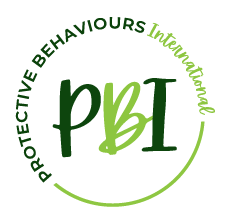Our Foundations: The Pillars of Protective Behaviours International
At PBI, our work is grounded in two interconnected pillars that guide everything we do.
These pillars provide the framework and focus for creating safe, connected and resilient individuals, teams and communities.
Pillar One: The Central Theme – “We All Have the Right to Feel Safe”
Pillar Two: The Universal Protective Behaviours Psychosocial Framework
Pillar One: The Central Theme – “We All Have the Right to Feel Safe”
At the heart of Universal Protective Behaviours is the belief that everyone has the right to feel safe all the time.
It affirms that safety isn’t a privilege for certain situations or individuals, and is in fact a constant, non‑negotiable right.
This theme helps participants:
Recognise when they feel safe and when they don’t
Identify their internal warning signs
Decide what kind of support they may need
It’s a foundation for understanding personal safety, emotional awareness, and healthy connection with others.
Pillar Two: The Universal Protective Behaviours Psychosocial Framework
The Psychosocial Framework of Universal Protective Behaviours has a structured framework that helps people translate the central theme into daily practice.
It offers practical tools and language to help individuals and organisations create safer, more respectful environments.
The framework is built around three key elements:
The Language of Safety: A relational communication model
Unwritten Rules: Implicit social norms and expectations that shape behaviour but are rarely discussed.
Feelings, Thoughts and Behaviours: The interplay between emotions, thoughts and actions.
The Universal Protective Behaviours Psychosocial Framework
-
Language of Safety
A relational communication model centred on four core components: Quality, Clarity, Shared Meaning, and Ownership.
When these elements are in balance, we communicate through a “language of safety” - expressing our right to feel safe while respecting others’ rights to feel safe too.
This model supports people to:
- Talk about safety with confidence
- Set healthy boundaries
- Express needs and expectations clearly
It applies to both what we say and how we say it, fostering psychological and emotional safety in everyday interactions.
-
Unwritten Rules
Unwritten rules are the unspoken social norms and expectations that shape behaviour.
In PBI training, participants learn to recognise how these “rules” influence their decisions and interactions.
By becoming aware of unwritten rules, individuals can:
- Make conscious, values-based choices
- Advocate for safer, more inclusive environments
- Question harmful norms
-
Feelings, Thoughts and Behaviours
Protective Behaviours recognises the powerful link between emotions, thoughts and actions.
By learning to name emotions and examine thought patterns, individuals can better understand how their thoughts shape behaviour - and how to respond proactively in challenging situations.
This self-awareness helps people make choices that support both their own safety and the safety of others.
Protective Behaviours International equips individuals and organisations to build cultures where safety is consciously understood, communicated and protected.
Discover how the Language of Safety can transform your team.
hello@protectivebehavioursinternational.net
PO Box 42914
CASUARINA NT 0810
PBI Commitment
PBI provides a consistent, personal and professional training framework that empowers individuals, teams and organisations to embrace the intent of Universal Protective Behaviours.
We work with partners who share our values of safety, integrity, inclusion and respect, and who meet the required professional unrestricted standing.
Together, we’re building safer, more connected communities.
*Definition of appropriate and unrestricted standing:
Current police check and child safety screening; has not been denounced from or struck off any professional body.


